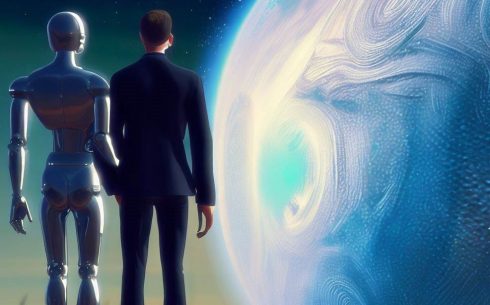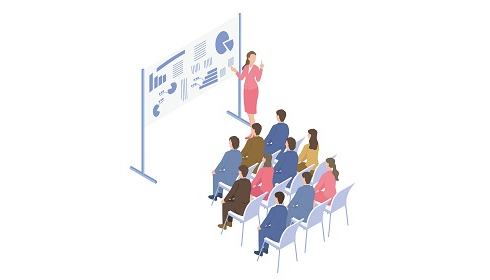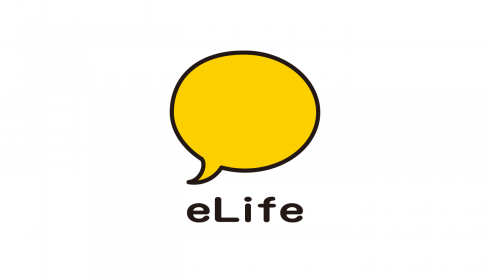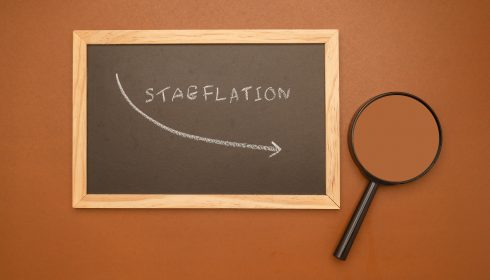Will "jobs that only humans can do" remain, an uplifting and philosophical question brought about by AI?
Today's narrator
 CEO Seiichiro Fujiwara CEO Seiichiro Fujiwara After marketing financial products and establishing a venture capital firm, he founded eLife Inc. 1999. Hobbies include marine sports and snow sports. Dog lover. |
Hello, I am Fujiwara, CEO of eLife.
I would like to share my thoughts on AI as represented by ChatGPT. Looking at the world's movements in the past few months, it is impossible to avoid this topic.
I am not an expert in this field, so I cannot share any useful insights right now, but as someone who has been involved in the Internet business for many years, I have more than a few feelings. I would like to write down what I am feeling and thinking at this point.
Skin feeling similar to the early days of the Internet
I think it was 1997 when I first came into contact with the Internet. I feel that the current situation is very similar to that time.
At that time, the Internet was based on telephone lines. This was before the advent of ADSL, etc., and communication speeds were so slow that they are unimaginable today.
When you tried to view a web page, there was usually an "X" at the image. I could read the description by hovering the cursor over it, and I would click on it only when I really wanted to see it. Then, after 5 or 10 minutes, the image would finally appear. Those were the days.
The Internet was originally operated by government agencies and research institutes, and private and commercial use was prohibited. In Japan, the ban on commercial use was lifted in 1993, but it was not until much later that ordinary users began to take the Internet for granted. Doing business using the Internet was still unthinkable at that time.
It was a web page that later became known as "The Coffee Pot in Troy's Room" that introduced me to the world of the Internet. It was a webcam showing a coffee machine in a laboratory at Cambridge University. I was surprised and excited to be able to watch in real-time as people from who-knows-where poured coffee into the machine. I was surprised and excited.
I immediately decided to create my own Web page. It was a simple one with an illustration of the dog I had and a file of its cries. Unlike today, it was an idyllic time, so I also opened my e-mail address to the public and wrote, "Please let me know what you think. Then I received e-mails from worldwide saying, "I saw your page! I received e-mails from worldwide saying, "I saw your page!
Through these experiences, I had a hunch that the time had come for individuals to create their own media. Looking back now, I can see that my intuition was correct. More than 20 years have passed since then, and it has become commonplace for individuals to own their own media.
The feeling of the last few months, when AI has become readily available, is very similar to the feeling I had back then. the internet has changed our lives and our work in the past 20 years, and I have a feeling that ai will bring about changes just as big as those changes.
Even the upgrade of ChatGPT from version 3 to 4 happened in a blink of an eye. My personal feeling is that the changes in two or three years will be immeasurable.

Image created by image generation AI based on advice from ChatGPT-4
Will there really remain jobs that only humans can do?
Well, if that is the case, how on earth should we behave?
The first thing many people say is, "Let's leave all the simple tasks to AI. Well, that is true. There are many simple tasks in our business, and we would like to replace them all with AI as soon as possible.
It is beyond that that becomes a problem. Most people ask, "What jobs can humans do that AI can't? Isn't that what humans should be doing? But I am skeptical about that. I wonder if there is really such a thing. is there really such a thing?
For example, creative work is often cited as something that only humans can do. However, even today, there are already examples of AI composing music and writing novels, aren't there?
What if we are still in the "early days of the Internet, when it took 5 or 10 minutes to display an image? Next year, it may be said that "composing music is not a job for people".
AI is based on past data, not creating something from scratch. On this basis, some people say that AI's creativity is limited.
But if you think about it, the same thing applies to humans. Whether you are a writer or an artist, you are not creating a work of art from scratch.
They use the various things they have come into contact with in their lives as input to create the output of their work. This is my understanding of creative activities. If so, it is not surprising that AI, with its large amount of data and processing power, can produce more creative work than humans can.
It is often said that "AI will never have emotions" or "AI cannot understand human emotions." I cannot agree with this opinion either.
Associated with this is the debate about the emotions of dogs. Some people say, "Dogs don't have feelings." They argue that dogs wag their tails and are happy when their owners come home, but that this is a conditioned reflex to be fed or given something, not an emotion.
Even if this is true, I am tempted to ask, "How is this different from human emotions? (Incidentally, I myself used to be of the "dogs don't have feelings" school of thought. (Incidentally, I myself used to be of the opinion that dogs do not have feelings, but after actually owning a dog, I became convinced that I was completely wrong.)
Thus, to ask what dogs and AI cannot do is also to ask "What is human creativity?" and "What is emotion? unless we can provide a clear answer to these questions, we should not be able to distinguish between humans and the rest, and I believe that we cannot logically deny the potential of AI.
Conversation with AI is (currently) similar to a foreign language
In my opinion, it is better to assume that eventually there will be nothing that AI cannot do. however, in terms of the immediate future, I think we should think about how to make the best use of AI. If we have time to think about "what AI can't do," we should first actively adopt and utilize "what AI can do.
So, how can we master AI; what are the capabilities needed to master AI?
Until now, it was programmers and engineers who gave instructions to computers, but now that AI can use natural language, it is no longer necessary to be an expert to give instructions.
However, as ChatGPT shows, there is still a language that AI can easily understand, and it is not exactly the same language that humans can easily understand, as evidenced by the new job title of "prompt engineer," who gives tasks in a language that AI can easily understand.
This is just my first-hand experience, but I think the ability required to give tasks to AI is similar to the ability to communicate with a foreigner in a foreign language.
When you are in the beginning stages of learning a new foreign language, you naturally have a limited vocabulary to use. In order to communicate your intentions to others, you will need to replace the complex thoughts you are thinking in your native language with simple words. Expressing complex things in simple words is a creative activity in itself, but my sense is that this is a world of sense rather than technique.
There are two types of foreign language speakers. One is the person who can construct sentences mechanically with a good vocabulary and grammar in mind. The other is someone who can somehow communicate with a foreigner in front of him or her, including gestures.
It is probably the latter type of person who is best suited for interacting with AI. I feel that the ability to sense the context of the situation is important.
Of course, we don't know if these abilities will be needed forever, and the day will probably come when AI can fully understand the exact same language as humans. However, at least for the present, such abilities seem to be in demand.
In fact, we have people who are computer illiterate, but they are better at interacting with AI. People who are different from those of the past may come to play an active role in the future.
What is being questioned is human existence itself
Some may take it negatively when I say, "Eventually there will be nothing AI can't do." Personally, however, I see this situation as the most pleasant thing ever. In other words, a new intelligent organism is about to be born.
The excitement I am feeling now may be similar to the excitement I felt when I first got a dog. I thought dogs had no feelings, but when I actually got a dog, I realized that it was a very emotional creature. I feel this kind of excitement toward AI.
Some people are concerned about the existence of AI in the world, as there is already a movement in Europe to regulate it. There are also concerns about copyright issues and other issues being discussed. Such problems certainly exist. However, we still have to face the question, "What is copyright in the first place?
Again, all creation is a mash-up, an editing world. Music is obviously the same, and probably novels are the same. For those who say "ban AI" using copyright as a shield, I would like to ask, "Then isn't what humans are doing a violation of copyright?
The situation changes at an incredible pace on a daily basis, so it is impossible to draw any conclusions that seem conclusive. We have to keep trying new technologies and incorporate them into our business.
At the same time, the more we think about ai, the more we will be asked, "What are we? it may be that management and business in the future, more than ever before, will need to continue to face endless philosophical questions.



